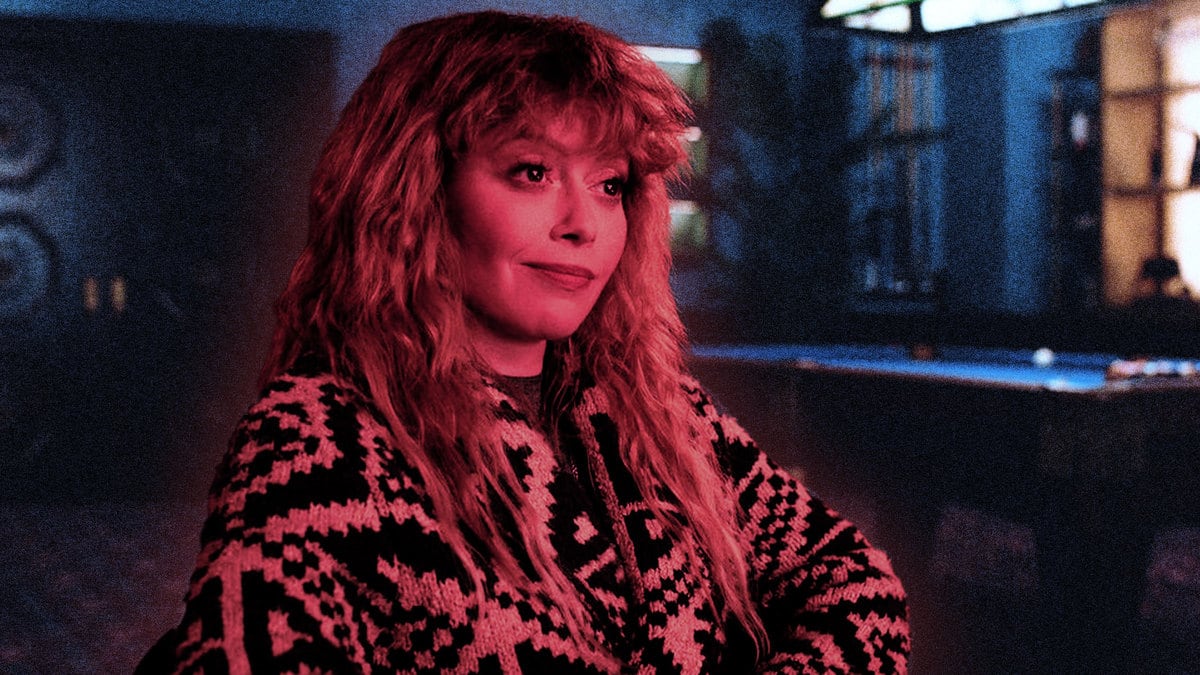Whenever Natasha Lyonne’s Charlie Cale stumbles onto a crime scene in Poker Face, we know she’s going to crack the case. A preternaturally gifted “human bullshit detector” who can instantly tell when someone is lying, Charlie is not your usual hard-nosed, badge-toting detective. She’s on the run from a knee-breaking gambling impresario who used to be an ally, and her booted feet spend a lot of time in her mouth. Honestly? Thank God for that.
Poker Face might be a procedural that thoroughly loves Columbo, but unlike most modern takes on the form (and the original Columbo), the Peacock series does not center on law enforcement or any official agency. (Peacock’s owner, NBC, already has plenty of that from Dick Wolf.) Our most significant police interaction so far in Poker Face has been with Simon Helberg’s FBI agent, who showed up for one episode that involved the witness protection program.
Poker Face’s relative lack of police presence, combined with Lyonne’s quietly, reluctantly emotional performance, gives the show a more tender feel than your average cop drama. Charlie’s vulnerability as an untrained, unprotected clue-follower opens the door to more human explorations of justice. At times, her solutions border on poetic.
Over the past few years, TV fans have become increasingly aware of the narratives and assumptions that often underpin police procedurals—or, as some prefer to call them, “copaganda.” These shows tend to valorize police, particularly those who break the rules in the name of “justice,” while simultaneously minimizing racism. Given that its subject is a rogue waitress who (whether by choice or not) now lives off the grid, Poker Face avoids replicating these issues. Charlie doesn’t make arrests, and she has no book to throw at anyone; her means of enforcing her own sense of justice is limited.

Like Daniel Craig’s Benoit Blanc in Poker Face creator Rian Johnson’s Glass Onion: A Knives Out Mystery, Charlie will always find the truth, but she has no institutional power. This creates a different, more human dynamic between Charlie and her suspects than those we usually see between, say, Elliot Stabler and his. Lyonne’s big brown eyes and mop of red hair give her an innocent, childlike quality, while her wise cracks and weathered voice cut the sweetness with a wry curmudgeonly air.
Charlie tends to suspects into rooms she shouldn’t, say things she shouldn’t say, and accept beverages from people who clearly should not be fucked with. She’s also an empathetic, justice-minded pair of eyes into both the crimes and the small worlds that contain them.
But what does justice look like when you’re just one person with no gun, no badge, and no force behind you? That’s where things can get really interesting.
Sometimes, Charlie is able to both solve the mystery and gather enough evidence to get police involved. (Actually, it happens a surprising amount of the time—but then again, who even finds this many mysteries to begin with?) This was the case in a handful of episodes throughout the season so far. The most fascinating outcomes, however, are those that force Charlie to think outside the box.
In the show’s fourth episode, “Rest in Metal” (spoilers), Charlie doesn’t have the goods to send the murderer—Ruby Ruin, played by Lyonne’s real-life pal, Chloe Sevigny—to prison. She does, however, manage to make sure that they will never benefit from the song she and her bandmates killed to steal. For Ruby, obscurity is a fate far more terrifying than prison—and being famous as a thieving hack? That’s even worse. Charlie even gets Ruby featured on a murder podcast to boot. And in this week’s installment, “The Future of the Sport,” Charlie’s best play is an extremely personal taunt—a stab at Charles Melton’s racecar driver character’s ego.

With a second season already greenlit and its first chapter already drawing to a close, the next question for Poker Face will become what kind of resolution Charlie herself might receive. She’s still in deep with those gambling bosses, and hitman Benjamin Bratt is still hot on her tail. What might happen if he catches her? (Given that there’s a second season coming, we’re guessing he won’t kill her.) And why was Charlie living alone in a trailer in the desert in the first place, with seemingly few friends and no family? With strangers, she’s often unguarded, but her personal circumstances suggest a history we don’t seem to fully grasp just yet.
That mystery might just take longer to solve, but it might just explain why Charlie seems to grasp one particular truth so well: You can never hope to understand a person’s choices unless you know the lies they tell themselves.
Keep obsessing! Sign up for the Daily Beast’s Obsessed newsletter and follow us on Facebook, Twitter, Instagram and TikTok.






